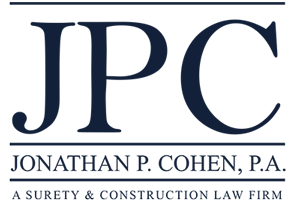Numerous specialty contractors in Florida who were not mandated to hold state licenses have faced local licensing requirements from municipalities and counties in their desired work areas. However, a pair of bills passed by the Florida Legislature and signed into law by Gov. Ron Desantis has changed the status of local licensing requirements. Here’s some information about what has changed and what to expect in the next year from Florida construction lawyer Jonathan P. Cohen, Esq.
Preemption of Local Licensing Requirements
In 2021, the Florida Legislature passed HB 735, which was subsequently signed into law with an effective date of July 1, 2021. This law created a new section of the Florida Statutes at § 163.211, Fla. Stat. (2023) to preempt local occupational licensing to the state and preempts many types of local specialty license requirements as of July 1, 2023. The law provided that local governments that had established local licensing requirements before July 1, 2021, could continue to issue licenses until July 1, 2023, when all local licenses would end.
HB 735 also amended § 489.117, Fla. Stat. (2023) to include new language stating that people performing work with a scope that does not correspond to any of types of contractors defined in § 489.105(a)-(o), Fla. Stat. (2023) do not have to register with the Construction Industry Licensing Board (CILB). In addition, local governments are not allowed to require local licenses for jobs that fall outside of the scope of the recognized specialty contractor categories under state law. This statute includes a list of jobs for which local governments cannot require licenses to include the following:
- Flooring
- Painting
- Interior remodeling
- Cabinetry work
- Installation of tennis courts or driveways
- Handyman services
- Installation of tile, decorative stone, terrazzo, granite, or marble
- Caulking
- Plastering
- Stuccoing
- Installation of canvas awnings
- Installation of ornamental iron
The statute states that this is not an exhaustive list.
In 2023, the Florida Legislature passed HB 1383, which extends the expiration of local licenses by one year to July 1, 2024. Under this law, the Construction Industry Licensing Board must create categories of special contractors for voluntary licensing at the state level for the following:
- Structural carpentry
- Plaster and lath
- Installation of windows, doors, hurricane protection, windstorm protection, and garage doors
- Structural steel
- Installation of rooftop solar panels
- Prestressed, precast structural concrete work
- Structural masonry
- Marine pile driving
- Marine dock work
- Marine bulkhead work
- Marine seawall work
- Screen or structural aluminum enclosures
This law also prohibits local governments from requiring licenses for work beyond what is required for contractors under state general laws. Any licenses must correspond to the various categories of contractors and specialty contractors required to obtain licenses by the state. Local governments also can’t require licenses that exceed the state’s licensure requirements as a prerequisite to bid on a public works project.
Purpose of the Changes
These bills were passed to preempt local licensing laws and decrease the regulation of contractors and those performing specialty work. The effect of these laws will be that some people will be able to perform certain types of work without having to obtain a license.
Talk to a Florida Construction Attorney
It’s important to speak to a Florida construction lawyer at the law office of Jonathan P. Cohen, P.A. to learn about when you might need a license and when you won’t because the new laws are difficult to understand. Local governments with licensing rules that existed before July 1, 2021, can continue to require local licenses until July 1, 2024. At that time, local rules that are preempted by state law will end, and the local licenses issued under them will likewise end. To learn about your licensing requirements, talk to attorney Jonathan P. Cohen, Esq. by calling us today at (954) 462-8850.
The information provided in this article does not, and is not intended to, constitute legal advice. The content in this article is presented for general informational purposes only.

